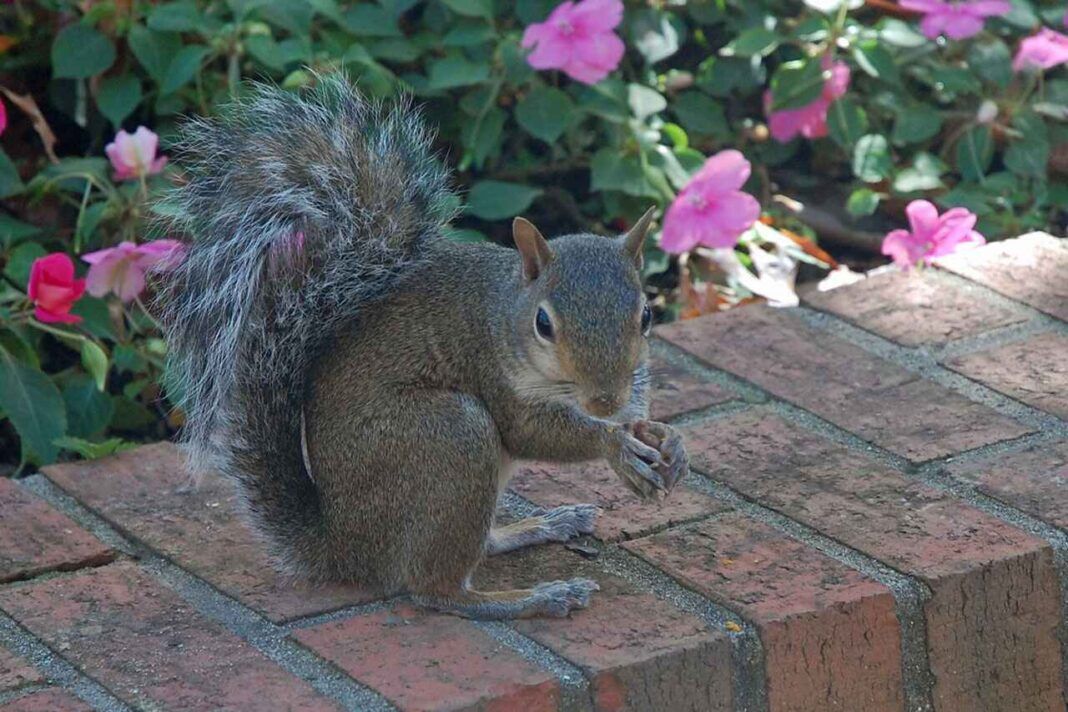A squirrel happily frolicking across lawns and trees, chasing around each other, is a delightful sight for both young and old. But despite their charm, squirrels also have negative impacts. For instance, they damage crops and harvests, build nests in and around properties, obstruct drains and vents, and chew on wires and insulation systems, potentially endangering humans with the risk of injury and accidents. So, it sometimes becomes necessary to get rid of them.
Damage and destruction caused by squirrels
While building a home, homeowners typically take protective steps to safeguard their property against various threats such as mold, pests, birds, and roots. But many overlook the potential damage that squirrels cause over time. While some may believe that squirrels can pose a threat to gardens and not residential properties, the reality is quite different. These small rodents have the potential to inflict damage on properties in numerous ways. Although the damage may not seem to be immediately apparent, the cumulative impact can be substantial and sometimes even dangerous.
1. Wiring
Squirrels love to move through low-hanging and drooping electric wires. Over time, their constant movement can cause these wires to weaken and eventually detach from their fasteners. This can result in dangerous consequences such as electrocution, short circuits, or disruption in power supply. If a squirrel’s nest in a tall tree is in close proximity to an electric wire, the squirrel may develop a playful habit of nibbling on the wire. This constant gnawing can damage the insulation, ultimately exposing the wires. Additionally, squirrels can harm the wiring and insulation in rooftops and attics.
2. Wall burrows
Squirrels are naturally curious and may create burrows within walls in order to explore or build nests. They are known to build nests in chimneys and other piping vents fixed to walls, eventually affecting the proper functioning of heating and air conditioning systems.
3. Attic
These spaces are commonly used for storage purposes, which makes them an attractive place for squirrels to build nests and reside without the threat from potential predators. These places also provide the required warmth and security for baby squirrels to thrive. Squirrels use materials like fabric, paper, insulation, and cardboard boxes to build their nests, often leading to messy areas. Additionally, these curious creatures chew on wiring and other important minerals stored in the attic, potentially causing significant damage.
4. Roof
Squirrels can peel off the roof shingles and create holes and gaps in the soffit or fascia boards, which can provide them with access to the house or attic. Moreover, these creatures can build nests in the gutter, causing rainwater stagnation and improper drainage. They also drop seeds and fruits along the way, which can block the gutters, leading to water stagnation and mosquito breeding.
5. Garden
This is one of the places where squirrels thrive the most. As they move from one tree to another, they damage the tips of trees, bushes, and plants in the garden, leading to stunted growth. They also nibble on flowers, buds, vegetables, and fruits, preventing a good harvest. Furthermore, they have the tendency to strip the bark of trees, which can inhibit growth and attract pests and diseases. They can also cause damage to outdoor patio furniture by nibbling on them.
Tips to get rid of squirrels instantly
Getting hold of squirrels on one’s property can be a challenge due to their agility and fast climbing abilities. But, there are certain ways that can help one get rid of squirrels instantly.
1. Install motion-activated sprinklers
Squirrels avoid water and rain. To keep them away from the garden, one can install motion-activated sprinklers that detect the movement of these creatures and emit sudden water sprays, effectively scaring the squirrels away. For larger gardens, one may need one or two of these sprinklers to cover all the areas and deter the damaging creatures.
2. Clean property regularly
One should clean the yard, gutters, and periphery of the buildings regularly to remove any nests. Visiting the attic regularly and getting rid of unnecessary clutter is also necessary to avoid squirrel infestation. If squirrels sense movement, it could inhibit them from building nests there.
3. Create barriers
One can consider creating physical barriers around fruit-bearing trees to prevent squirrels from accessing them. By restricting their access to the food source, one can reduce the likelihood of squirrels making the surrounding area their home.
4. Remove food sources
If one keeps pets and feeds them in an outdoor enclosure, or if they have bird feeders, squirrels are often drawn to these areas to get food. So, to prevent this, one should either eliminate these food sources or make them inaccessible to squirrels.
5. Install noise devices
Loud and sudden noises like banging, shrieking, and barking can scare squirrels. So, one can install motion-activated ultrasonic devices and noise machines that produce such loud noises in places where squirrels often thrive. These sudden noises can work as one of the best squirrel repellents.
Best DIY squirrel repellents
Strong smells and scents deter squirrels from entering a specific area. Various products are available on the market to assist one in repelling these small creatures. Additionally, homeowners can employ simple DIY methods at home to get rid of squirrels.
- Sprinkle ground cayenne pepper in lawns, especially around flowering and bulbous plants.
- Hang metal cans filled with pebbles on trees and plants.
- Hang windchimes in attics, around the house, in the yard, and on rooftops to deter them from creating nests and holes in the property.
